Transferts monétaires et mobilité humaine
Les transferts monétaires sont souvent utilisés lors de crises afin de répondre aux besoins des personnes migrantes. Dans cette page, vous trouverez des ressources sur les transferts monétaires et la migration.

La Croix-Rouge se prépare à fournir une aide humanitaire aux migrant·es de la caravane sur le point de quitter le Honduras pour le Guatemala.
©Johannes Chinchilla / FICR.
Conflits, crises économiques et catastrophes sont autant de raisons ayant contraint des personnes à fuir et à traverser des frontières dans des conditions éprouvantes et risquées, en quête de sécurité et de moyens de subsistance. En 2020, le nombre de personnes déplacées de force s’est envolé au niveau sans précédent de plus de 80 millions de personnes, soit près du double du nombre enregistré il y a une dizaine d’année. Cette tendance s’aggrave et les effets du changement climatique menacent de déplacer jusqu’à 200 millions de personnes d’ici 2050.
L’assistance monétaire est de plus en plus utilisée afin de répondre aux besoins des personnes en situation de déplacement. On y a eu recours à grande échelle dans différents contextes de migration, en Europe en 2015 jusqu’au Venezuela pour « los caminantes ». Elle a également été utilisée dans d’autres crises migratoires, notamment en Amérique centrale, au Sahel, en Méditerranée et dans la Corne de l’Afrique. L’assistance monétaire est à l’heure actuelle l’une des principales formes d’aide apportée aux populations déplacées en Ukraine et dans les pays voisins.
Il existe une myriade de perspectives et de définitions concernant le mot « migrant·e » et la façon dont les humanitaires doivent agir. C’est pourquoi nous ne choisissons pas une définition unique pour le moment, étant donné que les discussions sur l’assistance monétaire et la migration en sont encore à leurs prémices et que le langage évolue encore.
Documenter et partager les données probantes donnera lieu à des interventions plus efficaces. Cette page contient une sélection de ressources utiles concernant la migration et le recours à l’assistance monétaire. Elle sera mise à jour au fil des discussions ayant lieu dans les espaces humanitaires des transferts monétaires.
Priorités actuelles
Afin de contribuer aux progrès relatifs à cet enjeu, nous nous engageons à :
- soutenir la création de données probantes aux niveaux régional et mondial ;
- contribuer aux solutions pratiques visant à mettre en œuvre les transferts monétaires auprès des personnes migrantes ;
- organiser des discussions sur les enjeux majeurs basées sur des données probantes.
Contenu récent

The role of Cash Working Group Coordinator: Focus on Bangladesh
Blog Post
Multiple country cash working groups have emerged the past years to encourage the coordination of cash transfers across sectors. Eun Jung Yi, Coordinator of the Bangladesh Cash Working Group, presents some of the key achievements of the group within its first 12 months of existence.

New Publication: “MARKit: Price monitoring, analysis and response kit”
Blog Post
The Local Regional Procurement (LRP) Learning Alliance has launched a new publication “MARKit : Price monitoring , analysis and response kit” aimed to guide food assistance practitioners through the steps to monitor markets during the implementation of food assistance programs, and to ensure that...
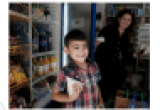
New publication: “MARKit: Price monitoring, analysis and response kit”.
Blog Post
The Local Regional Procurement (LRP) Learning Alliance has launched a new publication “MARKit : Price monitoring , analysis and response kit” aimed to guide food assistance practitioners through the steps to monitor markets during the implementation of food assistance programs, and to ensure that...
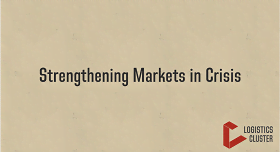
Videos on Cash and Voucher Programming from Logistics Cluster
Video
Market-based interventions is a hot topic in emergency response. The Logistics Cluster has produced several videos to help to explain the key concepts behind cash, voucher and market assistance. Cash and voucher programming is rapidly becoming a modality of choice for humanitarian programmes engaged in...
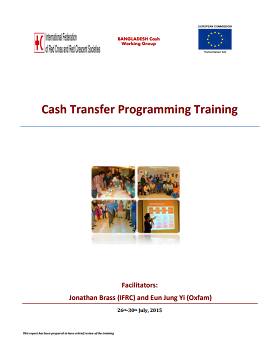
Cash Transfer Programming Training
Guidelines and Tools
IFRC developed this 4-day course on CTP, based on the materials developed by the CALP Network for their Level II training. The course has four modules that aim to cover the whole project planning cycle in relation to CTP, and which is encapsulated in the CTP process referred to in each section of the...
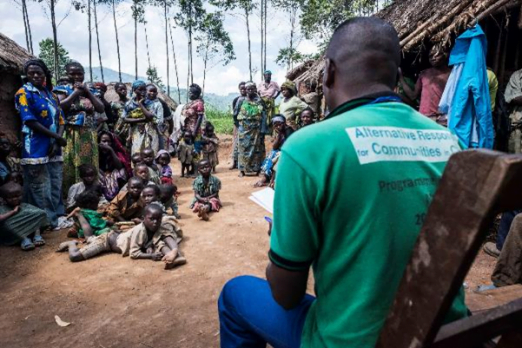
UNICEF’s Alternative Responses for Communities in Crisis (ARCC) programme – The largest Humanitarian Multi-Purpose Unconditional Cash Transfer Program in the DRC
Blog Post
Cash-based Response programs have a long standing history as part of humanitarian response in the Democratic Republic of Congo. Gabriele Erba provides an insight into the ARCC programme and its operational research component looking into the consequence of using different delivery mechanisms and of...

Economic Recovery Assessment
Report
As Ebola cases in Sierra Leone have dropped, the country and policymakers have turned their eyes to the challenging task of economic recovery. While some people are beginning to bounce back from the crisis, others, including petty traders and youth, continue to face reduced sales and limited alternatives...
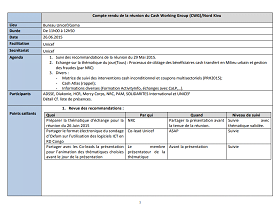
Compte rendu de la réunion du Cash Working Group (CWG)/Nord Kivu
Rapport
Présentation du projet aux autorités municipales et provinciales.

Protection in Cash Based Interventions – Interviews with Richard Nunn and Lou Lasap
Blog Post
As part of an ECHO-funded Enhanced Response Capacity grant, UNHCR in partnership with WFP, Oxfam GB and the Cash Learning Partnership held an inter-agency workshop on cash and protection in Nairobi on the 10-12th March. The workshop brought together cash and protection practitioners to reflect upon...
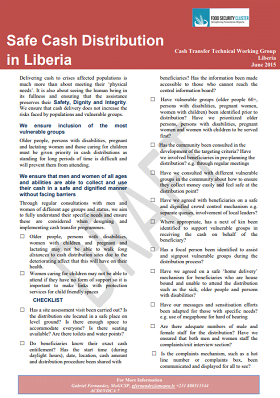
Safe Cash Distribution in Liberia
Report
Delivering cash to crises affected populations is much more than about meeting their ‘physical needs’. It is also about seeing the human being in its fullness and ensuring that the assistance preserves their Safety, Dignity and Integrity. We ensure that cash delivery does not increase the risks faced...
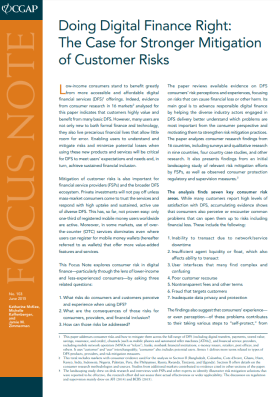
Doing Digital Finance Right: The case for stronger mitigation of customer risks
Policy paper
Low-income consumers stand to benefit greatly from more accessible and affordable digital financial services (DFS) offerings. Indeed, evidence from consumer research in 16 markets analyzed for this paper indicates that customers highly value and benefit from many basic DFS. However, many users are not...
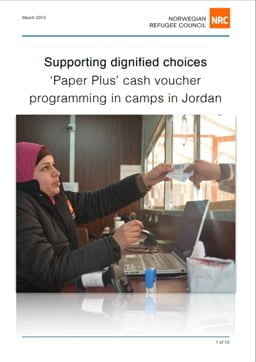
Supporting Dignified Choices ‘Paper Plus’ Cash Voucher Programming in Camps in Jordan
Report
The Norwegian Refugee Council (NRC) in Jordan has directly assisted close to 400,000 vulnerable Syrian refugees in both formal camps and host communities since it began operations in November 2012. NRC is the lead partner of UNHCR in Zaatari and Azraq camps in providing refugees with shelter and the...
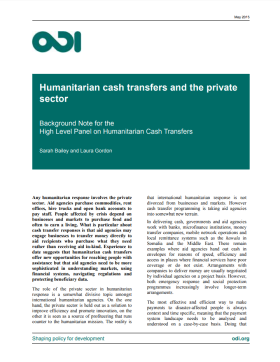
Humanitarian Cash Transfers and the Private Sector
Policy paper
The role of the private sector in humanitarian response is a somewhat divisive topic amongst international humanitarian agencies. This publication discusses the challenges and obstacles to a more effective engagement between the private sector and humanitarian actors as well as the potential role...
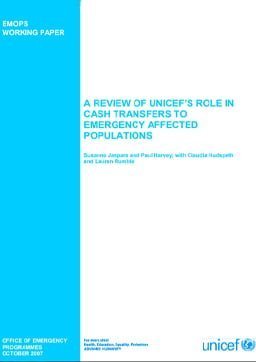
A Review of UNICEF’s Role in Cash Transfers to Emergency Affected Populations
Report
This paper is part of an ongoing process exploring UNICEF’s engagement with cash-based responses in emergencies. The main aim of the paper is to stimulate discussion on the potential role of cash transfers within UNICEF’s response to emergencies.
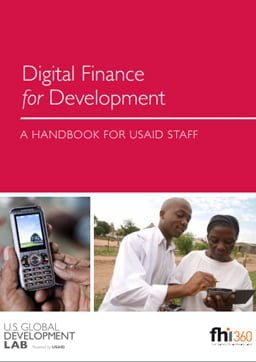
Digital Finance for Development: A Handbook for USAID Staff
Guidelines and Tools
This handbook is designed to enable USAID personnel to maximize the Agency’s use of and contribution to the growth of digital financial services in emerging markets around the world. As an Agency, USAID brings significant comparative advantages to the collective effort required to build out financial...
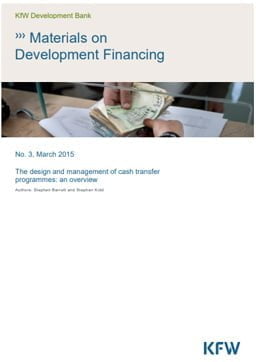
The Design and Management of Cash Transfer Programmes: An Overview
Policy paper
This paper describes and explains the operations of cash transfer schemes, outlining good practice in the design processes required to operationalize policy-level design principles. It describes the four key components comprising the administrative structure of most cash transfer programmes and, based on...
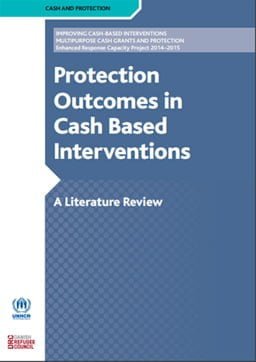
Protection Outcomes in Cash-based Interventions: A Literature Review
Report
This literature review examines existing research to determine whether the use of cash and vouchers is contributing to the promotion of protection and gender outcomes for beneficiary communities, following the WFP and UNHCR 2013 study on gender, protection and cash. This literature review focuses on these...
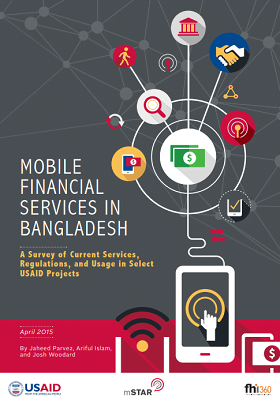
Mobile Financial Services in Bangladesh
Report
This report is the consolidation of findings derived from desk research and face-to-face interviews with key mobile financial services providers, telecom operators, technology platform providers, regulators, and USAID health and agriculture project staff and beneficiaries.
The objective of this report is...

Market Analysis Application in WASH Response
Report
Markets are an important aspect of the livelihood where the majority of the world’s population depend upon. During disaster, market recovery is critical where it indicates the recuperation that livelihood, jobs and businesses rely upon. Humanitarian actors need to factor market analysis into their...
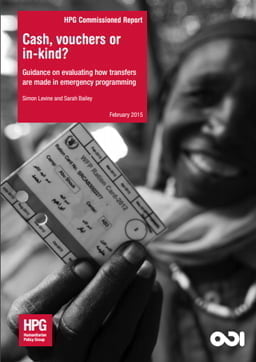
Cash, Vouchers or In-Kind? Guidance on Evaluating How Transfers are Made in Emergency Programming
Guidelines and Tools
In humanitarian settings, aid agencies often assist populations by transferring resources, usually using cash, vouchers or in-kind aid, such as food rations, shelter materials, seeds and tools and kits of household items. The use of cash or vouchers to replace in-kind aid is most pronounced in food...